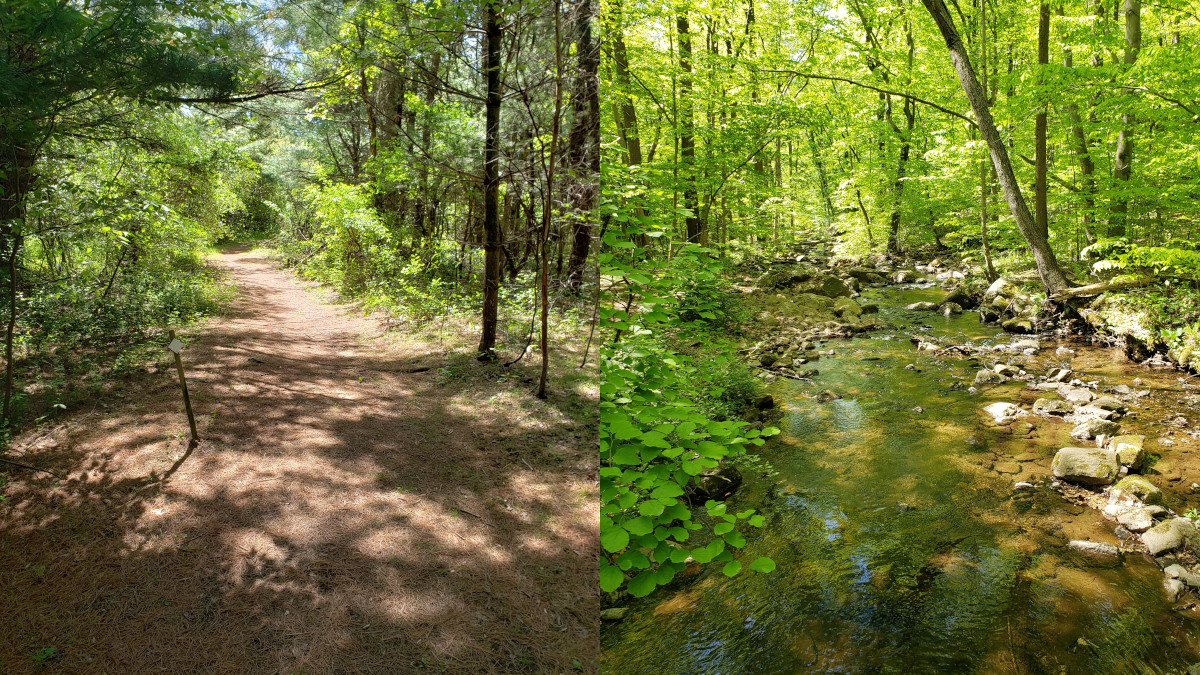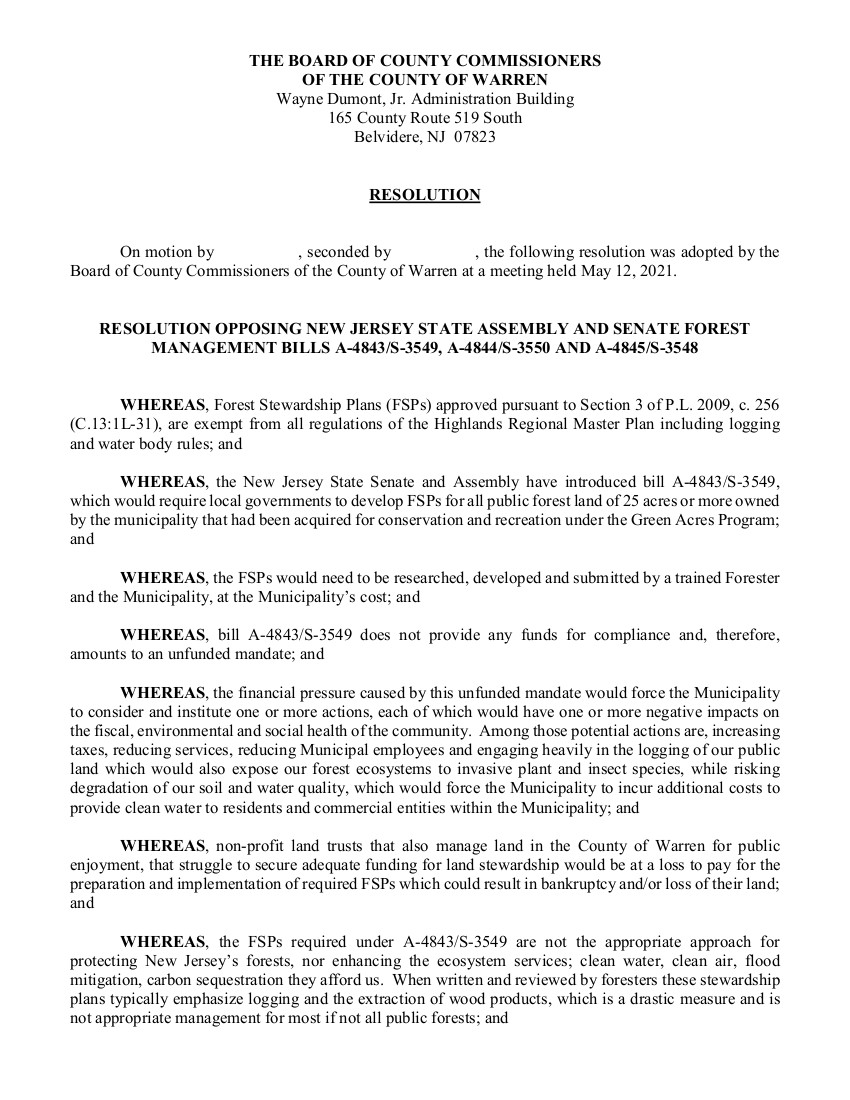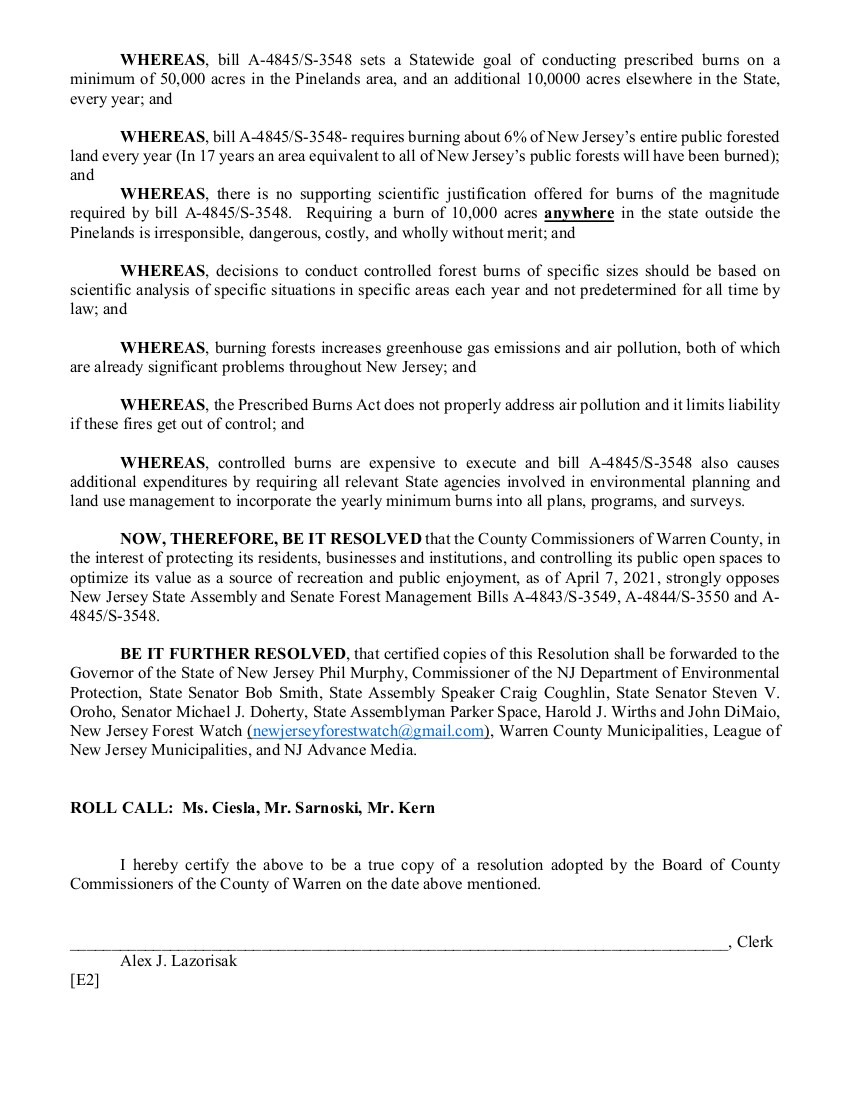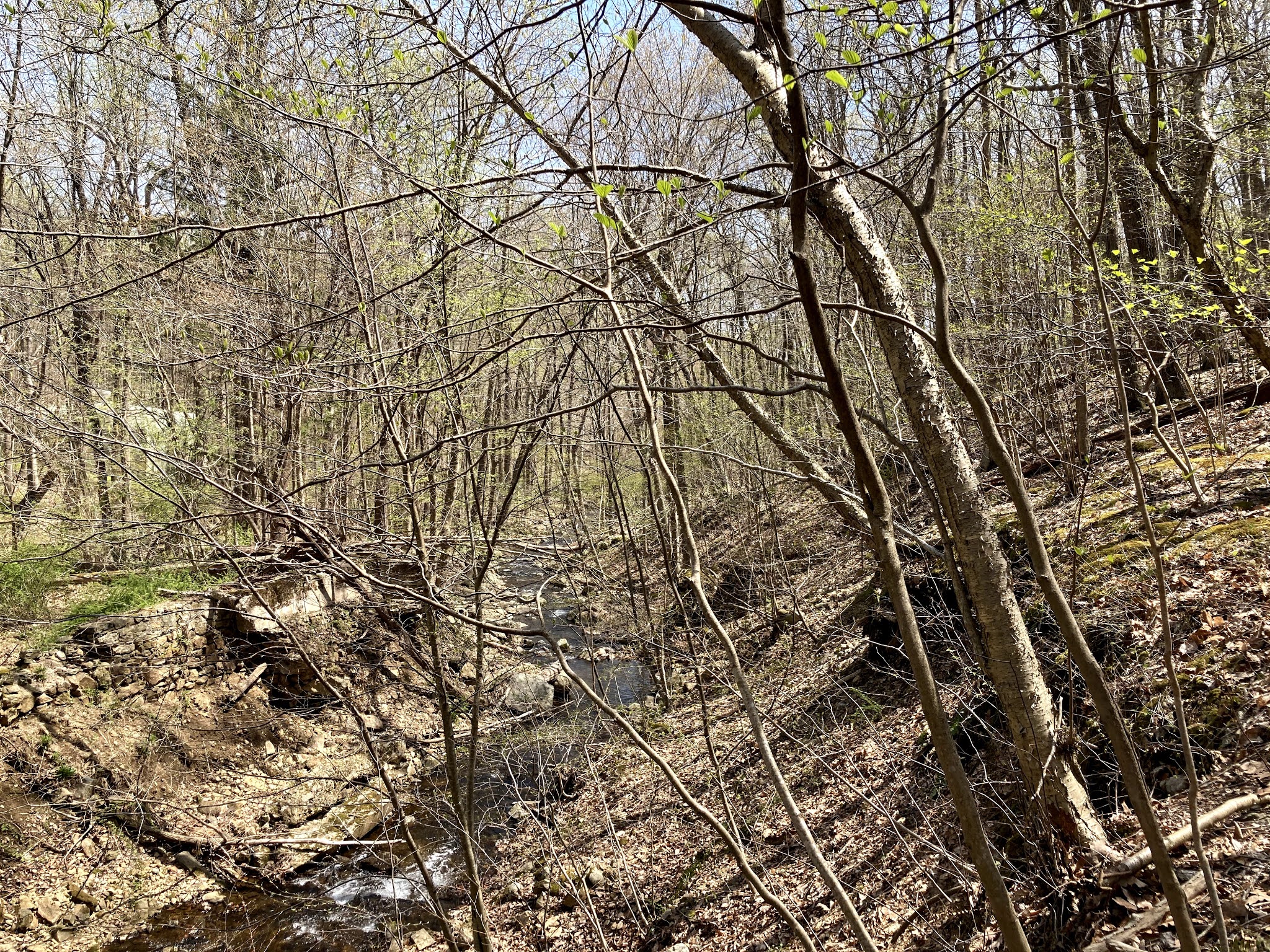
|
|
Roaring Rock Park Hiking Trail Brass Castle Creek Washington Township, Warren County NJ |
On Wednesday May 12th, 2021 Warren County New Jersey Commissioners unanimously passed a resolution in opposition to three bills (A-4843/S-3549 A-4844/S-3550 A-4845/S-3548) being considered by the New Jersey state legislature. If passed, these bills would have a devastating effect on New Jersey public lands, for parcels whose size is as small as twenty five (25) acres. These bills will mandate municipalities to obtain and implement "Forest Management Plans" (FMPs), similar to the one being considered for Roaring Rock Park in Washington Township. These "plans", despite their benign sounding titles, are primarily commercial logging plans whose primary intent is to transform New Jersey public lands into large scale tree farms, and away from what should be their purpose: to preserve, protect and promote their natural resources and to provide recreational opportunities to residents.
The Warren County NJ resolution also acknowledges the short sighted wording of the current bills:
- these bills will essentially create new unfunded mandates, requiring compliance by local government to state law while not providing state funding to local municipalities to facilitate compliance, and remediation of the damage that will result from logging activities;
- examples of such remediation costs will include, but are not limited to,
- replanting of harvested trees;
- removal of silt deposited in waterways, resulting from soil erosion and deposits from commercial logging machinery;
- restoration of fish and amphibian populations that will be diminished and killed off by silt pollution of streams and wetlands;
- increased control of invasive plant and insect species, both of which will expand their current footholds as the protective tree canopy disappears;
- increased control of browsing deer, who will target young tree saplings in a recovering forest for a food source;
- destruction of hiking foot paths that may exist on New Jersey public lands if they are to be widened as access roads for commercial logging machinery.
- adding insult to injury, these three bills will prohibit local governments, and their taxpayers, from influencing activities arising from FMPs (the same constituents who would be paying for the implementation!);
- it acknowledges the bills are primarily focused on commercial logging activities, not the retention, protection and promotion of the natural resources (trees, water and wildlife) that reside on New Jersey's public lands (the same resources that make the lands valuable in the first place!)
We commend Warren County Commissioners for drafting and passing a well written resolution which acknowledges the ecological and recreational value of public lands and forests, and their positive effects on making Warren County a desirable place to live. Warren County Commissioners are joining other municipal leaders across this state, such as Albert B. Kelly, mayor of Bridgeton, in recognizing these bills are short sighted and ill designed for New Jersey's municipalities.
Below is an image of the adopted resolution. We urge local New Jersey municipalities to consider adopting similar resolutions, especially if they have open public space greater than twenty five (25) acres.





